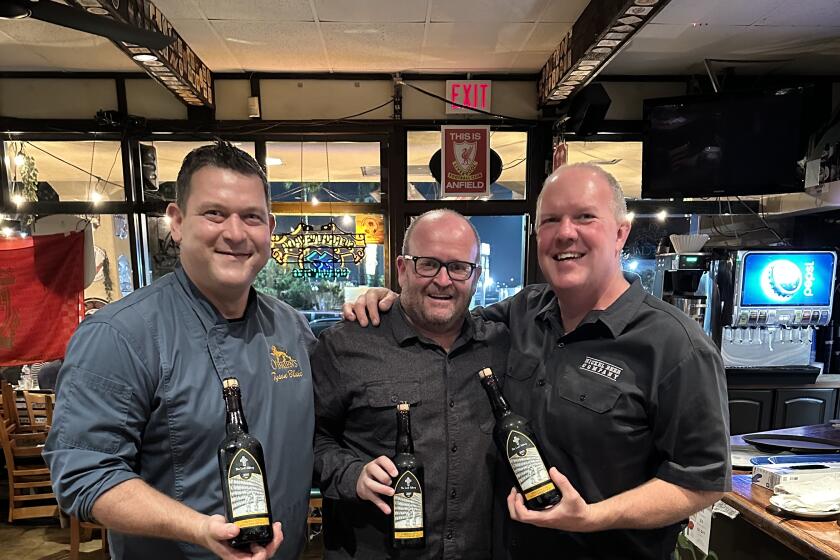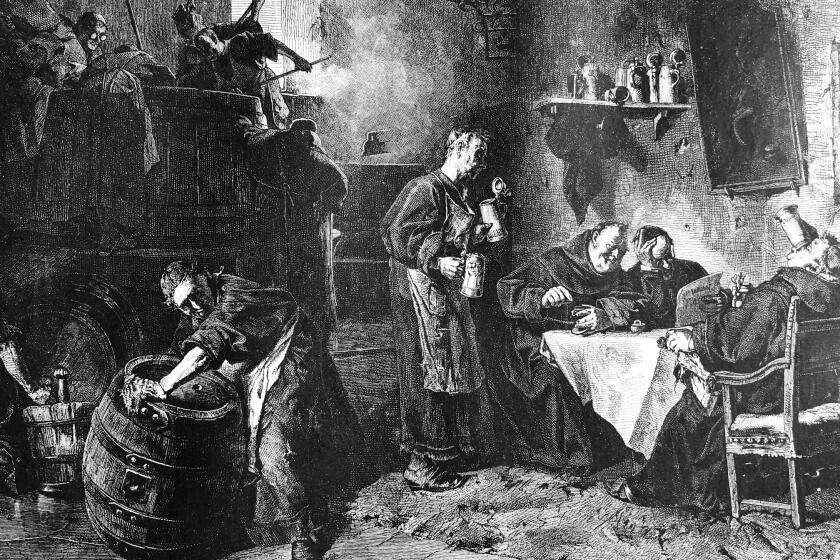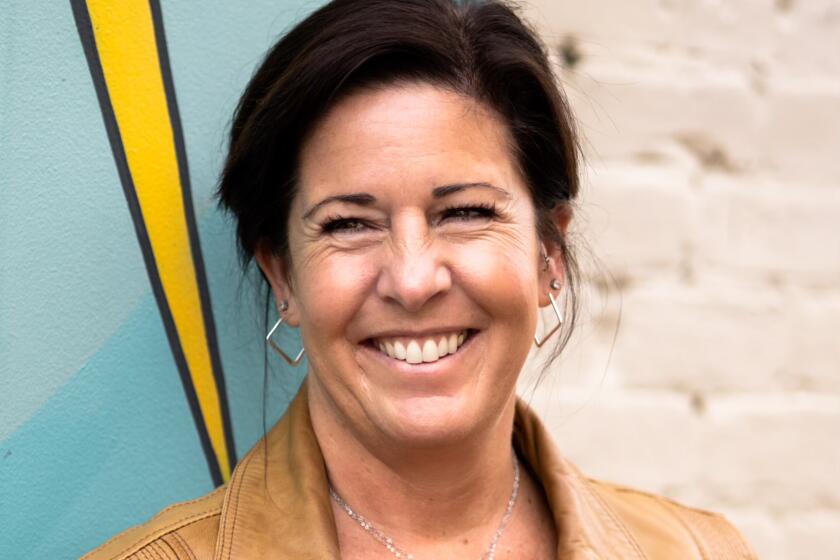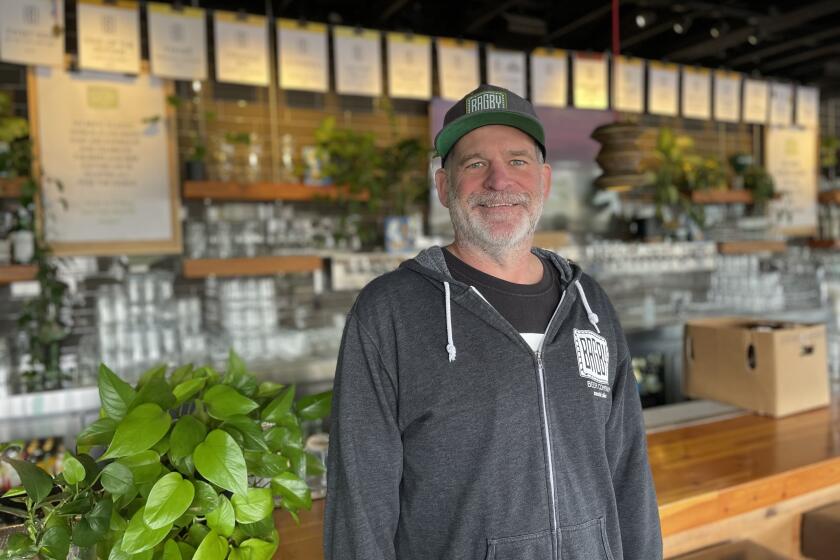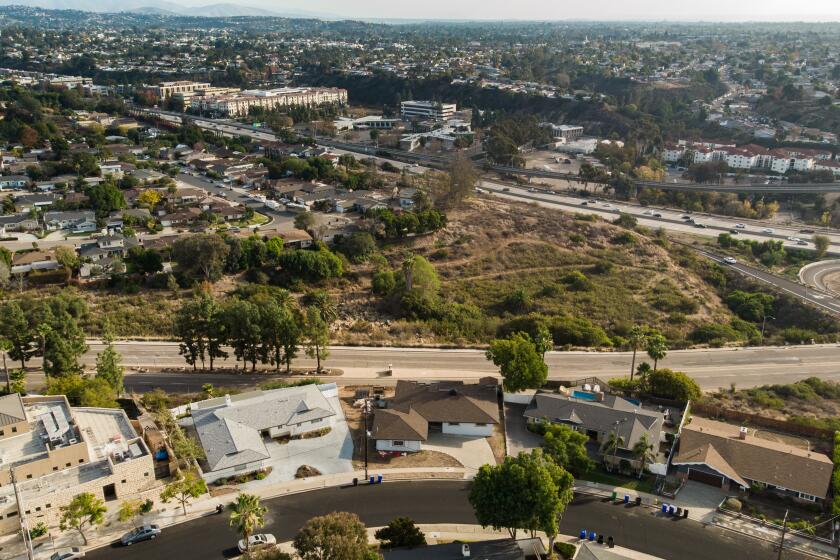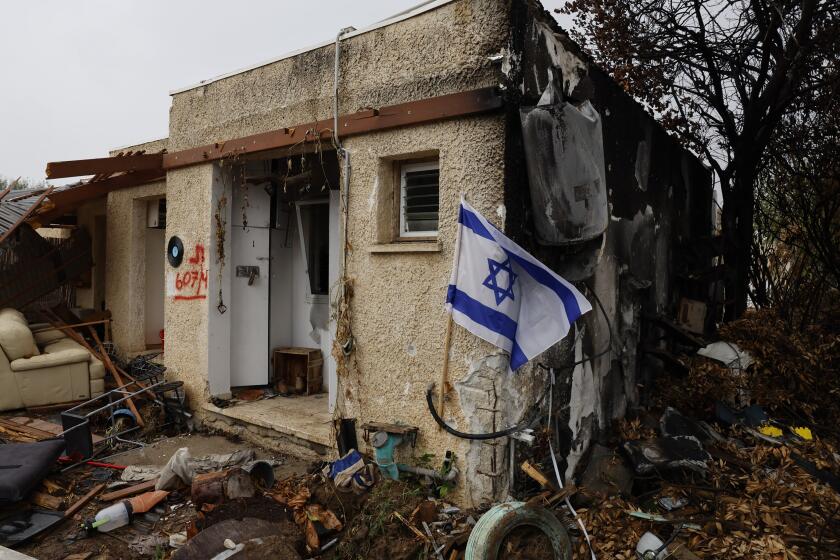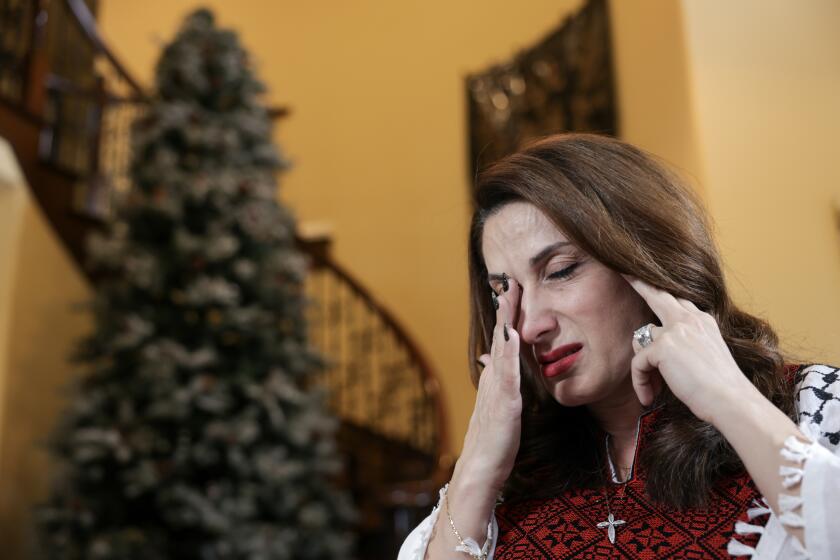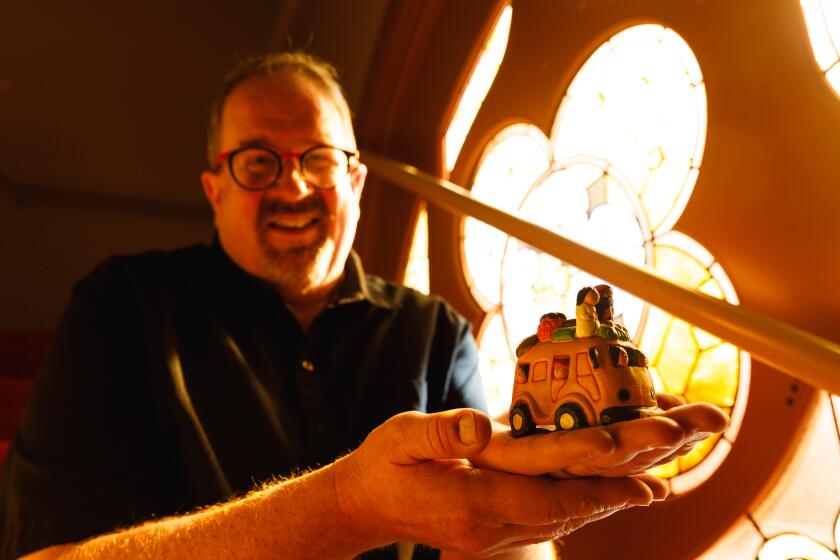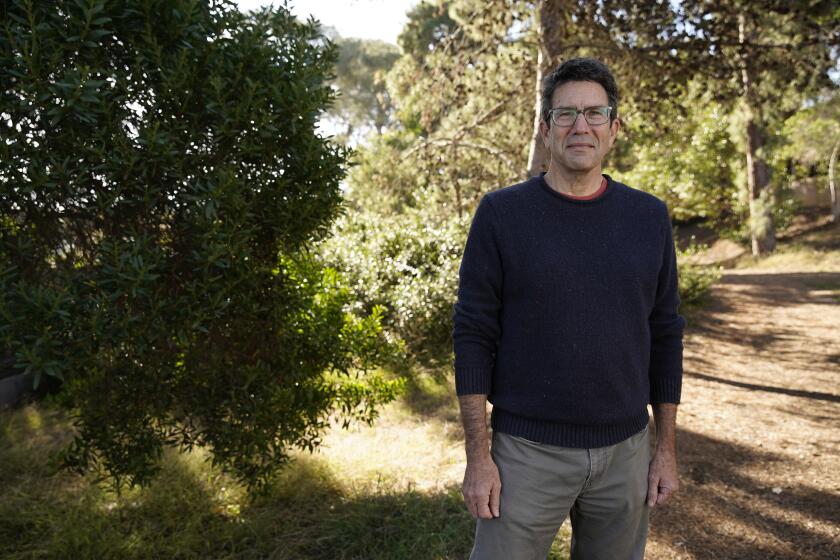Catholic diocese tackles family, marriage issues at rare synod
Catholic diocese tackles family, marriage issues at rare synod
9:00 a.m.
When Lulu Valdivia’s priest asked her to survey local Catholics, she heard from congregants at multiple parishes about the “beauty and realism” of marriage.
Things got real in a hurry.
Parishioners shared intimate secrets with Valdivia, a delegate to the Diocese of San Diego’s synod on marriage and family life. A nurse confessed her addiction to drugs and alcohol. The parent of a suicidal teen fretted, “What did I do wrong?” A wife broke down while admitting her husband forces her to have sex with other men.
“This lady said to me, ‘You think I can go to my priest with something like that?,’” Valdivia said.
She can, insisted Bishop Robert McElroy. In May, the 62-year-old prelate convened a synod — a meeting of church experts — to explore marriage and family issues.
While modeled on a recently concluded Vatican synod on the same topic, this effort has been focused on the diocese’s estimated 1.4 million believers in San Diego and Imperial counties.
“This has been very much a learning process for me,” McElroy said, “about how the laity wrestles with these issues.”
The last time the San Diego diocese convened a synod was 1976. “Rocky” was playing in movie theaters, a gallon of regular gas cost 59 cents and a Georgia peanut farmer was aiming for the White House.
Much has changed in the intervening 40 years, including the definition “church expert.” While senior priests and theologians are still present in the synod, they no longer dominate. The average age of the 125 delegates is 42. Most are lay people plucked from the pews of the diocese’s 100 churches.
That makes sense, McElroy said: “Marriage and family is where the laity has the expertise.”
Delegates have been collecting suggestions from the faithful since spring. They’ll submit their final recommendations to the bishop on Sunday, after a final eight-hour session of prayer, discussion and contemplation.
Some of the proposals: Marriage and family classes for all young Catholics, not just engaged couples; recognizing weddings, anniversaries and births in church bulletins or announcements from the pulpit; a welcoming approach to unmarried couples, whether straight or LGBT; exploring possible avenues for divorced and remarried Catholics to receive the Eucharist and other sacraments.
Believers, delegate Valdivia stressed, need to celebrate the beauty of loving unions and happy families. They should also embrace the reality that parishes also include wounded, struggling members.
Valdivia, a 46-year-old mother of two, quoted the woman whose husband shared her with other men.
Asked how she was doing, the woman replied, “Do you really want to know the truth?”
The church, Valdivia said, must answer “Yes.”
Squaring the circle
Marriage and family are universal experiences, yet San Diego sometimes experiences them differently.
Consider the term “single parent.”
“In most places,” McElroy said, “that means parents who never married, or are divorced, or whose spouse has died. Here, we have all of that. But also we have those who are deployed and those who are deported.”
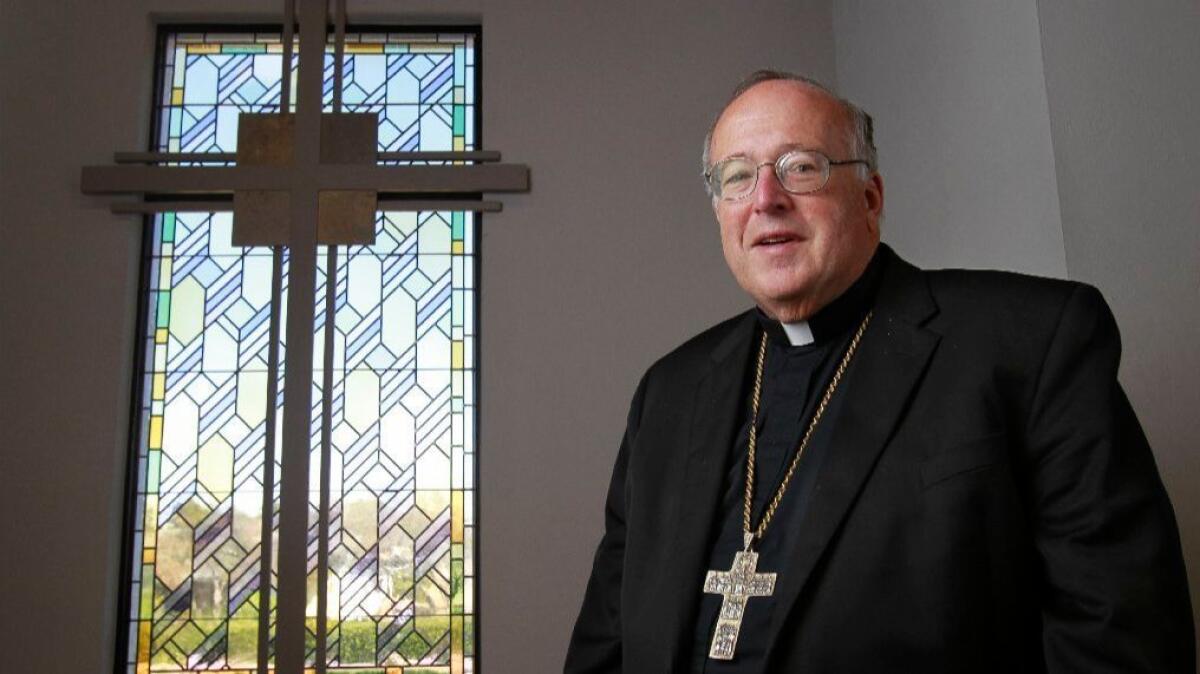
The bishop noted this insight didn’t come from the diocese; it came from the synod’s “listening sessions,” conducted in groups large and small since May.
The 125 delegates were divided into five groups, each with a separate challenge:
• “To witness to both the beauty and realism of the Catholic vision of marriage and family life.”
• “To form a culture of invitation and hospitality to unmarried couples.”
• “To welcome, nurture and form children.”
• “To provide authentic pastoral support for those who are divorced.”
• “To bring spiritual depth to family life.”
These topics are broad enough to encompass many issues. Too broad, some traditionalists insisted.
“Bishop Robert McElroy reveals himself as a dangerous Cultural Marxist,” wrote a reader of California Catholic Daily, an online publication, “promoting cohabitation and sodomy.”
McElroy admits that some of his goals may seem contradictory.
“A large number of young people live together,” he said. “We have a huge message that needs to be projected, a message of non-judgmentalism.
“At the same time,” he added, “we did not want to signal that living together was fine.”
How does the church square that circle?
Maybe it can’t, McElroy acknowledged, but the message has to be one of Christian love.
“We are not the church of judgment,” he said. “We are the church that calls people to follow Christ.”
For Thomas McKenna, this sounds like a diocese trying to adapt to the times rather than adhere to age-old teachings.
“The bishop has been vague on those things,” said McKenna, who leads Catholic Action for Faith and Family and attends San Diego's St. Thérèse of Carmel, “and I think that is a problem.
“He has to assert what the church’s teachings are.”
Evolving explanations
Catholics belong to a global faith, yet they worship locally.
“For most people,” noted Monsignor Richard Duncanson, pastor of Rancho Santa Fe’s Church of the Nativity, “the church is all about what happens in the parish.”
As a synod delegate, Duncanson was assigned to the working group examining marriage’s “beauty and realism.”
“The question was,” he said, “what can we do at the parish level to celebrate the richness of marriage?”
One popular proposal: Pair newlyweds with older couples who can counsel and support them, in good times and bad.
While that doesn’t challenge church teachings, Duncanson noted this suggestion emerged from an unfamiliar, almost radical, process.
“This,” he said, “is the first time we’ve ever had this kind of invitation to get our thoughts on any topic.”
Some proposals appear to contradict church teaching — for instance, allowing some divorced and remarried Catholics to partake in communion. Yet Duncanson insisted this is not a break with doctrine.
“Church teaching is unchangeable and divinely revealed,” he said, “but our understanding and our relationship to that teaching is ongoing. Our way of explaining it evolves.”
As part of that evolution, delegates grappled with the role of the “inner forum” — also known as the conscience.
Discussions of the “inner forum” were “a little bit ambiguous, to be fair,” said Nicholas McAfee, a 21-year-old delegate representing John Paul the Great University in Escondido. “It’s internal decision making as opposed to the external practice.”
While that sounds abstract, it could have concrete applications for divorced and remarried Catholics. The “inner forum” may reveal that the failed marriage was, in theological terms, invalid — even if a church tribunal has denied an annulment.
This has to be an honest reckoning, McElroy said: “What do I really think God is calling me to do?” It can’t be wishful thinking.
“The great enemy of conscience,” the bishop said, “is rationalization.”
But McElroy also quoted Pope Francis: “The Eucharist is not a prize for the perfect but a powerful medicine and nourishment for the weak.”
Family members
Many of the delegates’ recommendations will find broad support among the faithful — encouraging young adults to attend Mass; supporting parochial schools; hosting 12-step meetings; enlisting therapists for parishioners enmeshed in addiction or abusive relations.
Others, though, may expose divisions in the pews. One thorny issue: the status of LGBT Catholics.
“Our belief is that all people who are gay or lesbian or transsexual or bisexual, all those who face issues of sexuality, they are all members of our family and the family of God,” McElroy said.
Church doctrine regards homosexual acts as sinful and forbids same-sex marriage. At the same time, Pope Francis has demonstrated a more open, less judgmental approach.
“How do we deal with people in irregular unions,” Pastor Duncanson wondered, “the gay and lesbian loving relationships? How do we recognize the good there without recognizing this as a marriage?”
This is a welcome conversation, said Patrick Ambrosio, vice president of the San Diego chapter of Dignity, a national LGBT Catholic group.
Dignity was founded in San Diego in 1969. Yet contact between the local group and its home diocese had been virtually non-existent until recently.
Last summer, Ambrosio said, the diocese invited Dignity to attend a “Catholics Night” at a Padres home game.
“That’s one of the first communications we’ve ever received,” Ambrosio said. “Ever.”
McElroy said all parishes need to welcome LGBT worshippers. Some — the bishop cited Hillcrest’s St. John the Evangelist — have developed a reputation where LGBT worshippers “feel particularly welcome. And that’s a very good thing.”
McKenna, though, is concerned that many Catholics are confused about sexual morality, ignoring bans on all sexual activity outside marriage.
“The church can’t change its moral positions,” he said. “The church is not going to adapt to your violations.”
The synod’s final recommendations may not please everyone. Regardless, Valdivia felt the months spent listening to her fellow Catholics will build a more open and inclusive church.
"When you reach people with trust and love and an attitude that comes from the Holy Spirit,” she said, “you’ll find there is an urge to open up.”
Get Essential San Diego, weekday mornings
Get top headlines from the Union-Tribune in your inbox weekday mornings, including top news, local, sports, business, entertainment and opinion.
You may occasionally receive promotional content from the San Diego Union-Tribune.



